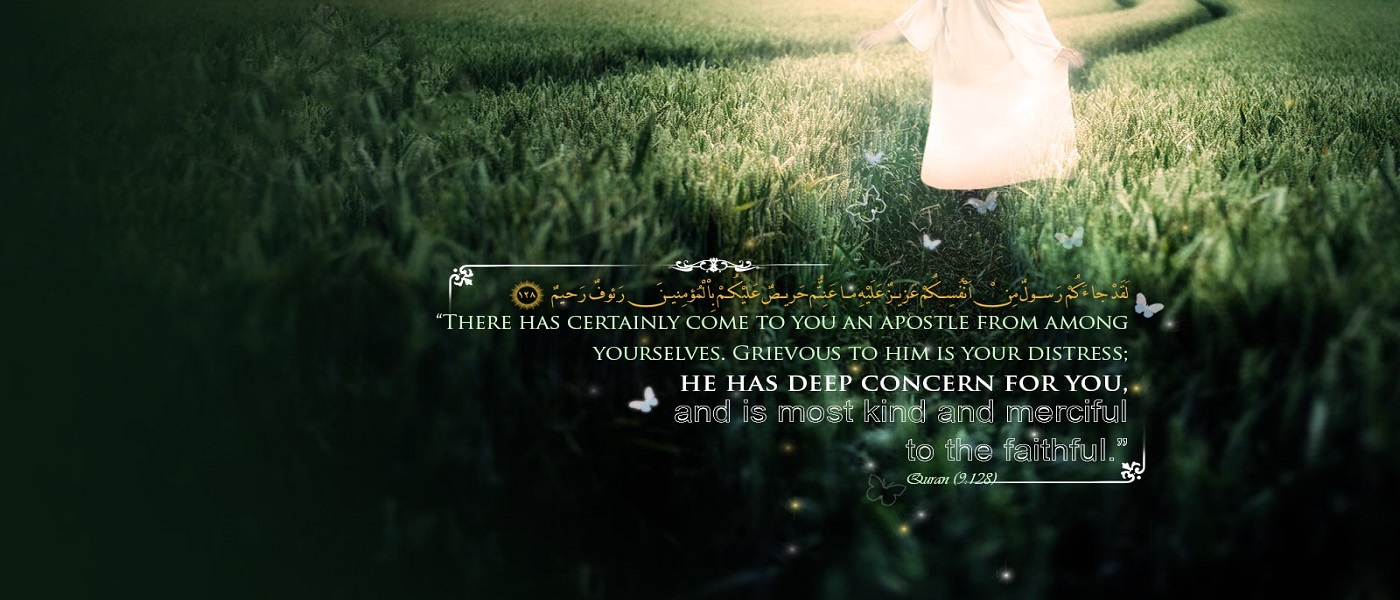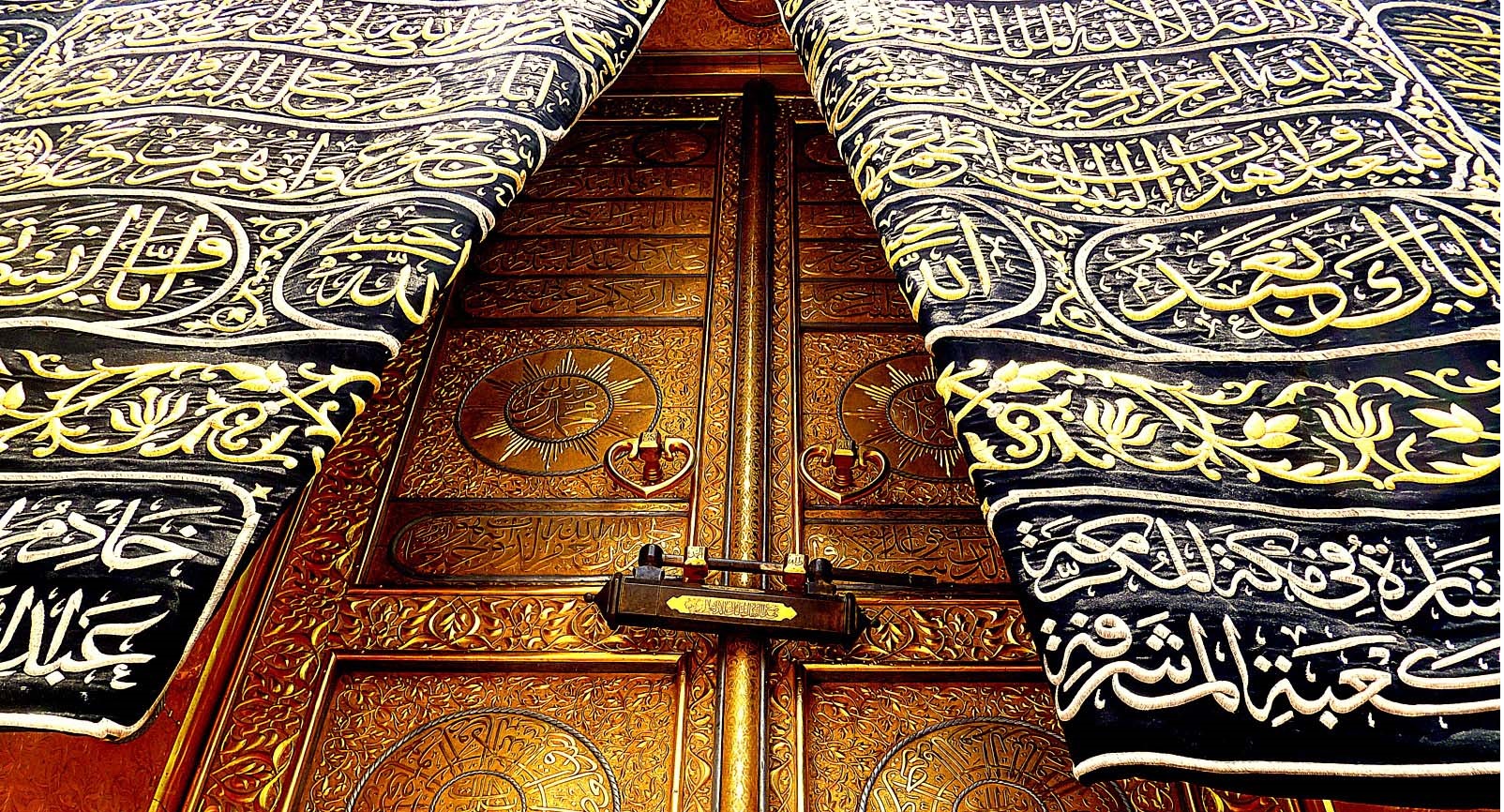

Prophet Muhammad (PBUH&HP)'s Approach Toward Peace and Concordance: Part 1
One of the aims of sending Prophets (PBUT), including Prophet Muhammad (PBUH & HP) , was to recite to faithful people the signs of Allah Almighty, to purify them and to teach them the Book and wisdom (3:164). Therefore, the Quran considers Prophet Muhammad (PBUH & HP) as an excellent exemplar for the believers (33:21). It means that all his deeds and behaviors at the individual, social, political, and cultural levels and even with other nations of that era, are instructive and he (PBUH & HP) is a perfect role model to be followed. Besides, he (PBUH & HP) was sent as a mercy to all the nations (21:107), both Muslims and non-Muslims. Hence, his approach in spreading peace and concordance in the world can be an excellent model to be followed. Here, we review how Prophet Muhammad (PBUH & HP) acted in this regard.
Making Peace and Coexistence Treaty with the Followers of Other Religions and Polytheists
Prophet Muhammad’s (PBUH & HP) Sunnah did not ignore other nations and their internal independence at all. On the contrary, Islam is a worldwide religion that has recognized other tribes and nations, whether inside or outside of the Islamic state’s territory. Clear evidence for that are the treaties that have been made between the Islamic state and different nations or tribes during the time of Prophet Muhammad (PBUH & HP). In the pre-Islamic Arab era, fighting other tribes, killing, and bloodshed was a culture. But, Prophet Muhammad (PBUH & HP) made various treaties and emphasized on adhering to them to demonstrate how the tension between parties can be peacefully reduced and fighting back is the option only when invaded. The Islamic state was always faithful to the peace treaties as far as other parties were so.
The Constitution of Medina by Prophet Muhammad (PBUH&HP)
As an example, as soon as Prophet Muhammad (PBUH & HP) arrived at Medina, he drew up a covenant among those who had emigrated with him from Mecca (Muhajirin) and the Jewish tribes of Medina including Aws and Khazraj (who were known later as Ansar (i.e. helpers, since they helped Muhajirin). This covenant was called the Constitution of Medina. This constitution aimed to guarantee the security and coexistence of various groups who lived in Medina and formed the basis of a multi-religious Islamic state. Some of its articles were:
• Muslims and Jews constitute “one nation” (Ummah Wahidah). Muslims are on their religion, so are Jews;
• Muslims and Jews are gracious to each other;
• The Jews adhered to this constitution should be protected and helped. No oppression upon them. No alliance with their enemies;
• Each party of this constitution should be allied with the other in case one of them is invaded;
• Both parties should ally whenever Medina is invaded;
• Both parties should take part in the expenses in case of a war. Muslims should pay their expenses, so do the Jews [1].
Treaty of Hudaybiyyah
At the time of Prophet Muhammad (PBUH & HP), Mecca was under the control of one of the most significant Arabian tribes called Quraysh, who were polytheists. They had forbidden Muslims to enter the city and perform Hajj rituals. After Prophet (PBUH & HP) had dreamed entering Mecca doing Hajj rituals with companions, this Ayah confirmed his (PBUH & HP) dream: “Certainly Allah has fulfilled His Apostle’s vision in all truth: You will surely enter the Sacred Mosque, God willing, in safety, with your heads shaven or hair cropped, without any fear.” (48:27). Hence, The Prophet (PBUH & HP) and a group of Muslims with some other Arabs of around Medina, marched peacefully towards Mecca without arms, in the hope of making a pilgrimage. At first, Quraysh prevented them from entering Mecca. Still, after some negotiations, a treaty called the Treaty of Hudaybiyyah was drawn up between the two parties, which helped to decrease the tension between them.
This treaty guaranteed a 10-year peace between Quraysh and Muslims and authorized Muslims to return to Mecca in the following year to perform a peaceful pilgrimage [1].
References:
- M. A. Amini, “The principle of peaceful coexistence with non-Muslims in Islam,” Ma’rifat Journal, no. 165, p. 35-52.
Share This Article
Lady Zainab and the Nurses' Day in the Islamic Calendar
Lady Zainab (SA) is an icon of purity, bravery, and steadfastness.Though she lived 14 centuries ago, her personality and teachings continue to guide men and women till now/to this day. She is the fruit of the tree of Prophethood nourished by Imamat. Lady Zainab (SA), the daughter of Imam Ali (As), has several attributes and titles associated with her, such as Al-Aqilah the noblewoman, Al-Aalimah or the knowledgeable woman and Aminatu-al-Allah, the faithful of Allah (SWT).
She belonged to a holy lineage; her mother was Lady Fatimah al-Zahra (SA), - the daughter of Prophet Muhammad (PBUH & HP) - and was actually a reflection of her father in the worship of Allah, piety, self-discipline, virtues, clemency, veneration, and the other features of perfection thus her father named her the chief of the women of the worlds and such a great mother nurtured Lady Zainab.
Lady Zainab’s life
Lady Zainab’s father, Imam Ali (AS) honoured as the representative, successor and heir to Prophet Muhammad (PBUH&HP) was given remarkable titles like ‘the chief of the prophets’ successors’, ‘leader of the pious ones’ and ‘the head of the worshippers’ by Prophet Muhammad (PBUH&HP) himself. With innumerable merits and unrivalled sacrifices for Islam he was recognised and reputed as the most knowledgeable, the most magnanimous, the most generous, the most abstinent, the most trustworthy, the best worshipper, the most faithful, and above all, the most pious and the bravest of all Muslims. In other words, he was the best Muslim after the Holy Prophet Muhammad. (PBUH&HP).

Lady Zainab (SA), hence, was born into the most pious family and raised under the care of the best human beings therefore she learnt many things that composed her perfect personality from the etiquettes of her parents and her brothers. Since early life, she was marvellous in her intellect and wisdom and had learnt the Holy Quran by heart as well as the Prophet’s sayings regarding Islamic laws, rules of education and principles of ethics.
Throughout her life she faced one tribulation after another, but emerged strong and victorious in all her trials. She then witnessed the martyrdom of her mother, father and brothers - Imam Hasan and Imam Hussain (AS) - and in Karbala where all male members of her family were brutally martyred including her own sons Awn and Muhammad, and all the women folk were taken into captivity. But despite all these vicissitudes she always remained a source of strength and a caretaker for the survivors of the tragedy of Karbala and the flagbearer of the message of this great event. She is the epitome of selflessness and perseverance, the embodiment of patience and courage in the face of oppressors and the personification of knowledge and purity. Despite all the hardships she endured in Karbala she decided to preserve and propagate the true message of Karbala While her bravery, eloquence, courage, asceticism, chastity and caring nature towards the survivors of the tragedy of Karbala has been and still is unparalleled in history.
The Holy Prophet Muhammad (PBUH&HP) says, “Whoever tries to fulfil the needs of a sick person, whether they fulfil it or not, they will be cleansed of their sins like the day they were born.”[1] In another tradition, he has said, “Whoever looks after the sick for an entire day, Allah (SWT) will raise them up with Prophet Abraham.”[2] If we would take only these two traditions into consideration, we can understand the greatness of Lady Zainab (SA) who cared for Imam Sajjad (AS) and all the children and women who had got sick or were injured after what happened in Karbala. Therefore, taking inspiration from her, the 5th of Jamadi-Al-Awwal which is her birthday is celebrated as the Nurses’ Day in the Islamic calendar.
References:
- Kitab Man La Yahzarul Faqih, V.4, Pg.16
- Sawab ul Aamal, Pg. 341
- https://www.al-islam.org/lady-zaynab-badr-shahin/life-lady-zaynab
- https://www.al-islam.org/victory-truth-life-zaynab-bint-ali-muna-haeri-bilgrami
Read More

How was the First Imam, Imam Ali (AS) Born?
There is no doubt among us that after our dear Prophet Mohammad (PBUH&HP), our twelve Imams (AS) are the most important figures of our religion. On that account, today we want to get to know more about our first imam and the first male convert of the religion birth matter and conditions.
The faithless say, ‘You have not been sent [by Allah].’ Say, ‘Allah suffices as a witness between me and you, and he who possesses the knowledge of the Book’
The Holy Quran (13:43)
And among the people is he who sells his soul seeking the pleasure of Allah, and Allah is most kind to [His] servants
The Holy Quran (2:207)
If the two of you repent to Allah... for your hearts have certainly swerved, and if you back each other against him, then [know that] Allah is indeed his guardian, and his supporters are Gabriel, the righteous among the faithful and, thereafter, the angels...
The Holy Quran (66:4)
If we seek the true meaning of these three verses above of our holy book, they all seek Ali (AS) as their primary target and guide us to some aspects of his life. our dear imam has been implicitly described by The Quran many times that shows us His great importance in our religion.
No one can fully describe the contributions of Imam Ali (AS) to his religion and the people and if anyone dares to do so, he can merely show a drop of the sea. That said we are about to speak about the first question that may occur to our mind: how was our first Imam born?
Birth of the Son of Kaaba, Ali b. Abi Talib
Thirty years after the “year of the elephant” (*) occurrence, in the 13th of Rajab (March 8), when Prophet Mohammad (PBUH&HP) was 30 years old, 10 years before our dear The Prophet (PBUH&HP) received the first revelation from the angel Gabriel and 23 years before the great migration of Muslims from Mecca to Medina.
At this time, our dear imam's pregnant mother (Fatima Daughter of Asad) was praying at Kaaba. She felt an immense amount of delivery pain that she fled to Kaaba from that pain. Suddenly the wall of Kaaba has moved apart and given shelter to her for 3 whole days. After these days, she came out of Kaaba with her dear son, our first imam, Ali b. Abi Talib (AS). Imam’s delivery was a great honor that happened to no one And after yet; walls moving apart, mother’s presence in the holy site of Islam, and the unique birth in Kaaba were all the signs of the greatness of son of Kaaba.
Fatima Daughter of Asad was the second woman that converted to Islam (after Prophet’s wife, Khadija” SA”). She had the honor of taking care of the Prophet (PBUH&HP) from the age of eight until his youth in her (Abu-Talib) house. Their relation was as much close that Prophet (PBUH&HP) called she “mother” So we can see the early strings of Prophet (PBUH&HP) calling Imam Ali (AS) his brother.

Shia point of view about Imam Ali (AS) birth:
1.Sheikh Mofid (died in 413th AH): our first imam, Ali b. Abi Talib (AS) was born on Friday the 13th of Rajab and thirty years after the year of the elephant in Mecca. No one ever has been born in Kaaba before and after him. His delivery was the great honor that God granted him to show his dignity over other men of his age.
2. Allamah Al-Hilli (died in 726th AH): Imam Ali (PBUH) was born on Friday the 13th of Rajab and thirty years after the occurrence of the year of the elephant. No one before and after him, was born in Kaaba at that time, The Prophet (PBUH&HP) was thirty years old.
Sunni point of view about Imam Ali (AS) birth:
Many of the Sunni scholars Believe that Imam’s birth routine was in Kaaba and some of them even think this matter exclusively was only for the Imam.
We will name some of them briefly and look at their point of view:
1. Al-Hakim al-Nishapuri (died in 658th lunar year): a lot of Consecutive narrations have pointed that Fatima bt. Asad have delivered Ali b. Abi Talib in the Kaaba.
2. Sibt ibn al-Jawzi Hanafi (died in 654th lunar year): It has been narrated that when Fatima bt. Asad was pregnant and doing tawaf around the Kaaba, she sensed an immense delivery pain that she fled to Kaaba from the pain; when suddenly Kaaba’s door got opened to her so she went into the Kaaba and gave birth to his child.
Poetry about imam Ali (AS) birth:
Syed Ismail Himayari (who died in 173th AH) was one of the greatest poets of Arabic literature. He wrote a poem about this unique birth:
His mother gave birth to him in God’s safe site; God’s house and masque was his birthplace
He was pure and noble; her mother, her child, and her birthplace too
In one of the darkest nights, he appeared with lunar purity
No child other than Amine’s child is honored like him
References:
- Kitab al-Kafi (first Volume – page 452)
- Kitab al-Irshad (first Volume – page 5)
- I'lam al-Wara bi A'lam al-Huda (first Volume – page 306)
- Bihar al-Anwar (35th Volume – page 182)
- Description of Nahj al-Balagha (first Volume – page 6)
- Manaqib Ale Abi Talib (third Volume – page 307)
- Rawżat al-Vaeezin (page 81)
---------------------------------------
* In that year, Kaaba invaded by faithless king Abraha and his great elephant army and ironically saved by Allah himself with an army of birds carrying small stones by their pecks that penetrate the elephant's body and skull and all of them got killed, and Kaaba was saved.
Read More

